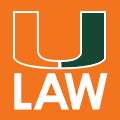Offers Video ConferencingTap to Call This Lawyer

Phil Revah
Real Estate Lawyer - Litigation and Transactions
Phil Revah, Esq. is a partner and founder of Revah Law Group. Mr. Revah focuses his practice of law on Real Estate Litigation and Real Estate Transactions, with a particular focus on Landlord Tenant Litigation, Evictions and Construction Litigation
Mr. Revah has achieved sustained success in court in a wide range of real estate related lawsuits, particularly in cases involving landlord tenant litigation, breach of real estate purchase agreements, declaratory actions for tax deed surplus funds, foreclosures on behalf of condominium and homeowners’ associations, evictions, unlawful detainer actions, ejectment suits, and commercial and residential construction disputes, including construction lien foreclosures. Mr. Revah has also successfully represented developers and investors in quasi-judicial proceedings involving land use, re-zoning, and platting. As a lawyer who is knowledgeable and experienced in all matters involving real estate, Mr. Revah’s unique and extraordinary abilities in court have set him apart in his practice and have garnered the accolades of the legal community.
Mr. Revah’s passion for landlord/tenant representation led him to establish Florida’s first all-eviction law practice. He has extensive experience in all matters affecting real estate, particularly related to Landlord/Tenant law, foreclosures, condominium association and homeowner association disputes, and land use and zoning law. In these and all legal matters Mr. Revah handles, his goal is to identify his clients’ objectives and to then establish a strategy that will provide the swiftest and most desirable results for his clients.
Mr. Revah knows that each case is unique and therefore utilizes an individual approach in handling each of his client’s matters. His mission is to handle each client’s case with the utmost preparedness, efficiency, and timeliness. Mr. Revah will work closely with you to achieve the best possible outcome.
- Landlord Tenant
- Evictions, Housing Discrimination, Landlord Rights, Rent Control, Tenants' Rights
- Real Estate Law
- Commercial Real Estate, Condominiums, Easements, Eminent Domain, Homeowners Association, Land Use & Zoning, Mortgages, Neighbor Disputes, Residential Real Estate, Water Law
- Construction Law
- Construction Contracts, Construction Defects, Construction Liens, Construction Litigation
- FaceTime
- Google Meet
- Zoom
- RingCentral
- Free Consultation
-
Credit Cards Accepted
Visa, Mastercard, American Express, Discover -
Contingent Fees
Contingency Accepted on Landlord/Tenant litigation.
- District of Columbia
- District of Columbia Bar
-

- Florida
- The Florida Bar
- ID Number: 118393
-

- D.C. Circuit
-

- US District Court, Southern District of Florida
-

- English: Spoken, Written
- French: Spoken, Written
- Hebrew: Spoken
- Partner
- Revah Law Group
- - Current
- Partner
- Edelboim Lieberman Revah Oshinsky PLLC
- - Current
- Attorney
- EVICT FL
- - Current
- Attorney
- Revah Law, PLLC
- - Current
- Legal Clerk
- Hall, Lamb and Hall, P.A.
- -
- University of Miami School of Law
- J.D. (2015) | Law
-

- University of Florida
- B.A. (2011) | Philosophy
- Honors: cum laude
-

- Three Best Rated - Real Estate Lawyers in Miami, FL
- Three Best Rated
- Rising Star
- Super Lawyers
- 2022
- The Florida Bar # 118393
- Member
- Current
- Activities: Real Property Trust and Estate Law Section
-

- Why Landlords Should Hire An Eviction Lawyer
- Evict FL Blog
- The Eviction Moratorium's Impact on Evictions in Miami-Dade County, Channel 10 Local News
- Notary Public
- State of Florida
- Website
- Revah Law Group
- Q. Can the property manager charge me $500 more to move in when it's not on the welcome letter or outlined in signed lease?
- A: A landlord cannot charge anything that is outside the contract. Ask the landlord to point to the relevant contractual language that allows the property manager to charge an additional $500.00. If they cant, then the charge should be disputed.
- Q. Falsely evicted. House had mold. Landlord did not respond and fix in a timely manner. Can you assist?
- A: Florida law is very strict when it comes to responding to an eviction suit filed by a landlord. In order to raise any defense, the tenant must deposit the rent into the court registry (regardless of the existence of mold, etc). In order to properly raise a defense to the eviction case, first rent had to be deposited, and second, the tenant must furnish proof that the tenant put the landlord on notice of the mold issues before using that as a defense to a nonpayment eviction. Hope this helps.
 Lawyer Phil Revah Appears on Palm Beach County Local News to Discuss Landlord Tenant law in Florida
Lawyer Phil Revah Appears on Palm Beach County Local News to Discuss Landlord Tenant law in Florida
 Attorney Phil Revah Appears on Miami Local News to talk about the Eviction Moratorium
Attorney Phil Revah Appears on Miami Local News to talk about the Eviction Moratorium